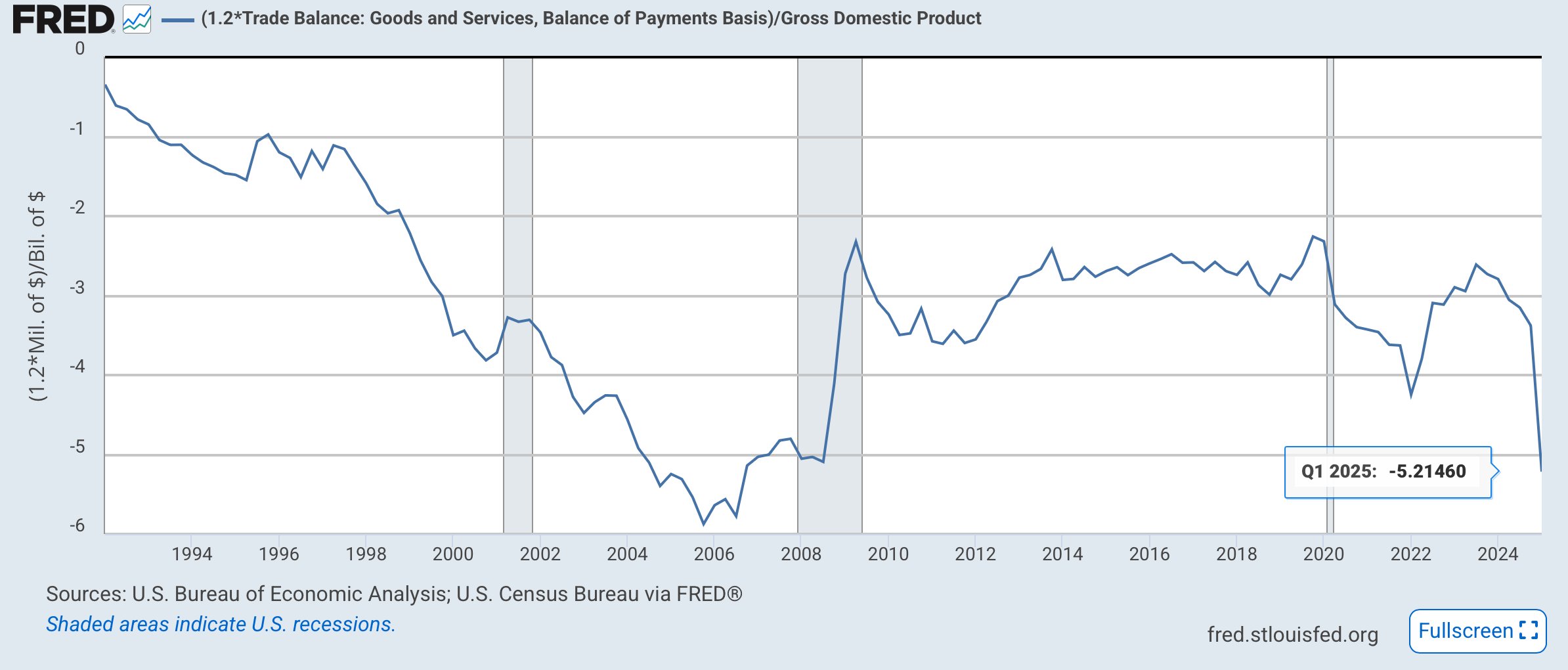In an X post here John Carney argues that the U.S. trade deficit is large and historically unprecedented. James Surowiecki disagrees. The issue is not: is the trade deficit large? It is. The right question is: will tariffs reverse the trend? Probably not. But more on that issue below. First: Here are the data.
The US Trade Deficit as a Percentage of GDP
A deficit of 3% of GDP means that we are accumulating a debt to the rest of the world, largely China, at a rate of 3% a year. This is cumulative. But as long as we are financing government budget deficits at a rate of 5% of GDP, and as long as US households are unwilling to save 5% more than they invest domestically, the excess will inevitably appear as a trade deficit.
That is not to say that tariffs are a mistake. They will help bring manufacturing back to the US and that will benefit blue collar workers as US intellectual and physical capital is increasingly forced to combine with US unskilled labor instead of a billion Chinese unskilled workers.
Tariffs will change relative prices and they will raise the real wages of American blue collar workers. Not just the US workers who are employed by the manufacturing sector. But also all those working in services and non tradeable goods who compete with manufacturing workers. Manufacturing does not have to be large as a fraction of the economy for the manufacturing wage to influence wages throughout the rest of the economy.
As Stolper-Samuelson taught us more then 75 years ago, trade makes the average resident of two trading blocks better off. It does not benefit the owners of labor and capital equally. Workers in a country that is relatively well endowed with capital, like the US, are unambiguously harmed when they are forced to compete, indirectly through trade, with a large pool of foreign unskilled workers.
Trumps pronouncements aside, the trade deficit and tariffs are two disconnected policy concerns. One can favor tariffs without believing they will reverse the trade deficit which is primarily a consequence of the fact that the rest of the world chooses to use the US dollar as a store of wealth and as a means of payment.

